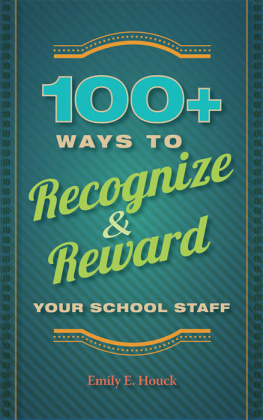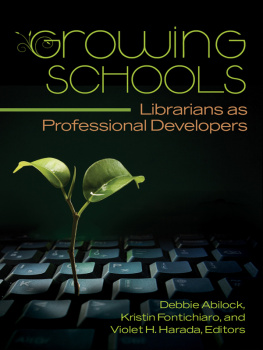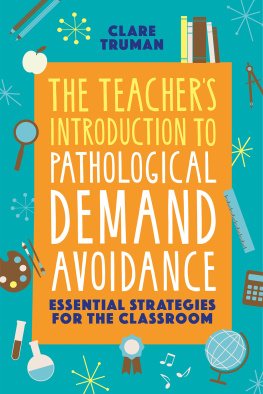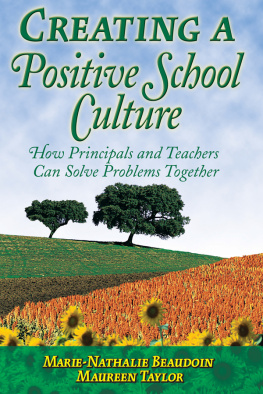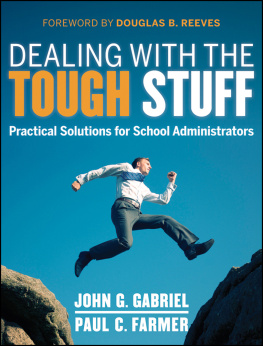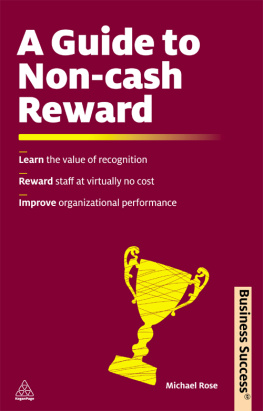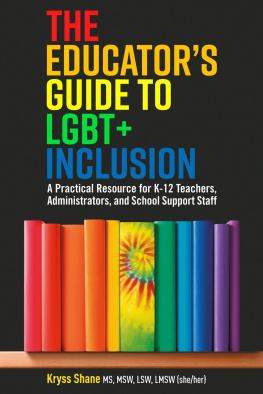....................
This work is dedicated to my first teachersmy parents.
Preface
....................
I received a copy of this letter (see Figure A) that was sent to my superintendent by my principal 23 years ago. Obviously I still have that letter. Why would I have saved this acknowledgment of my efforts so very long? It's simple; it was something special, unexpected, and extremely rare, and in retrospect, sad. Sad that it was so out of the ordinary, that it became a one of a kind keepsake. How different I would have felt if I had worked in an environment where the acknowledgment of my efforts was commonplace, where I knew every day that I was valued and what I did was making a difference. Who knows, I might still be there.
FIGURE A. A Recognition Letter
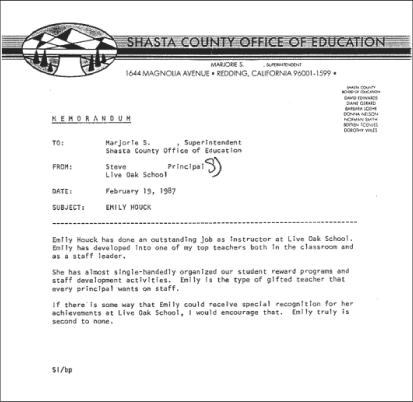
The goal of this book is to help you move your department, school, or district into that kind of placea place where acknowledgment is appreciated, but is not a once in a lifetime event.
Praise isn't a foreign concept. It isn't difficult to dispense, but a jaw-dropping 65 percent of Americans report that they have never received any recognition for their good work on the job. Consequently they leave. We can change that in the business of education. We can increase individual productivity and increase engagement among colleagues. We can retain our teachers, encourage staff loyalty, and increase parent satisfaction by recognizing the hard work and effort of colleagues and our educational staff members.
This book is intended to provide administrators, department heads, classified managers, and anyone heading up a group of people with practical, easy to use, and inexpensive or free ways to motivate, reward, and recognize the efforts of their staff.
As a side note, I never heard from the superintendent.
The Top 20
These 20 ideas (see Figure B) are my favorites from the book. I have used them all with great results.
FIGURE B. Top 20 Recognition Ideas
Effort: Moderate
Effort: Moderate
Effort: Moderate
Effort: Moderate
Effort: Low
Effort: Moderate
Effort: Low
Effort: Low
Effort: More
Effort: More
Effort: More
Effort: Low
Effort: Moderate
Effort: Moderate
Effort: Moderate
Effort: Low
Effort: Low
Effort: Low
Effort: More
Effort: Moderate
Chapter 1
What Employees Want
There are two things people want more than sex and money recognition and praise.
Mary Kay Ash
....................
This section of the book will be kept relatively short, so you can get to the "good stuff" quickly. But I think it's important to touch on why recognition and praise are important in the workplace, even if it's just a brief overview.
Research tells us that employees want some specific things from their jobs (Blanchard & Bowles, 1998). These are
- The ability to provide for their families and themselves
- Control of achieving a goal
- Worthwhile work
- Recognition of staff efforts and accomplishments
Most of us don't have much control over paychecks, so we'll pass over that the first one and move on to control of achieving a goal.
Control of Achieving a Goal
"When teachers were asked, 'What is it that makes you so outstanding?' they readily remarked that they had an administrator who encouraged and supported them, trusted their professionalism, and made them feel like a significant member of a very important team."
Neila A. Connors
In his work, Maslow talked a lot about reaching levels of belonging and esteem (Podmoroff, 2005). Teachers and staff members having a say in the development of the school or district goals falls nicely into supporting the development of these needs: belonging and esteem. When teachers are in a positive environment, one in which they are contributing towards the common goal, they are more apt to share their fulfillment with their students in a win/win situation. "Purpose is a powerful motivator. The inherent recognition in purpose comes from seeing progress towards goals" (Ventrice, 2003, p. 25). Sharing a common goal and working towards its attainment doesn't just benefit the individual person; it is a major contributor to school growth. Additionally, it is one of the leading factors as to why teachers stay at given schools or in the profession entirely.
Simply stated, folks that work in schools don't want to be treated as unthinking drones. They want to be part of the plan, they want their input to be heard, and they want their ideas to be taken seriously.
Worthwhile Work
"People have to understand how what they do contributes to the well-being of mankind."
Blanchard and Bowles
We spend nearly one-third of our adult lives at work, so it stands to reason that we want our workplaces to be a source of need fulfillment. When that happens, our lives are full and enriched, and we can focus our attention on finding meaning through work. When it doesn't happen, we are so preoccupied with finding other ways to satisfy our needs that we are never truly present at work (Podmoroff, 2005).
As educators, we can easily understand the importance of our work. In our young people, we nurture academic talent, mold behavior, increase occupational choices, develop civic accountability, and encourage personal maturity. In sum, we shape the future.
We cannot assume, however, that all our school staff members feel appreciated in this work, and we should not take their efforts for granted. Instead, we should highlight and recognize their contributions to the present and the future, both because it is the right thing to do and because it will motive them to continued excellence. Whitaker argued in Motivating and Inspiring Teachers: The Educational Leader's Guide for Building Staff Morale, "Principals who take the time necessary to make sure that teachers understand their worth will find that classroom instruction will improve as teachers' self-efficiency improves" (Whitaker, Whitaker, & Lumpa, 2000, p. 188). We have all experienced the joy and honor we feel when a former student finds us and lets us know that we've made a difference in their lives. That's why we teach, that feeling. Administrators and other leaders can harness that commitment and passion by reminding our staffs that they matter.
The contributions teachers make to the development of young people is readily apparent. We must also remember to recognize and reward the other members of our staffs whose contributions remain hidden from obvious view. Our cooks, custodians, bus drivers, and secretaries also matter in the quality of a school, and we must strive to also highlight and publicize their efforts and achievements.
Recognition of Staff Efforts and Accomplishments
"Administrators who make it a priority to treat teachers with respect, recognize invaluable contributions, and realize teachers are their best allies, see great things happen."
Neila A. Connors

